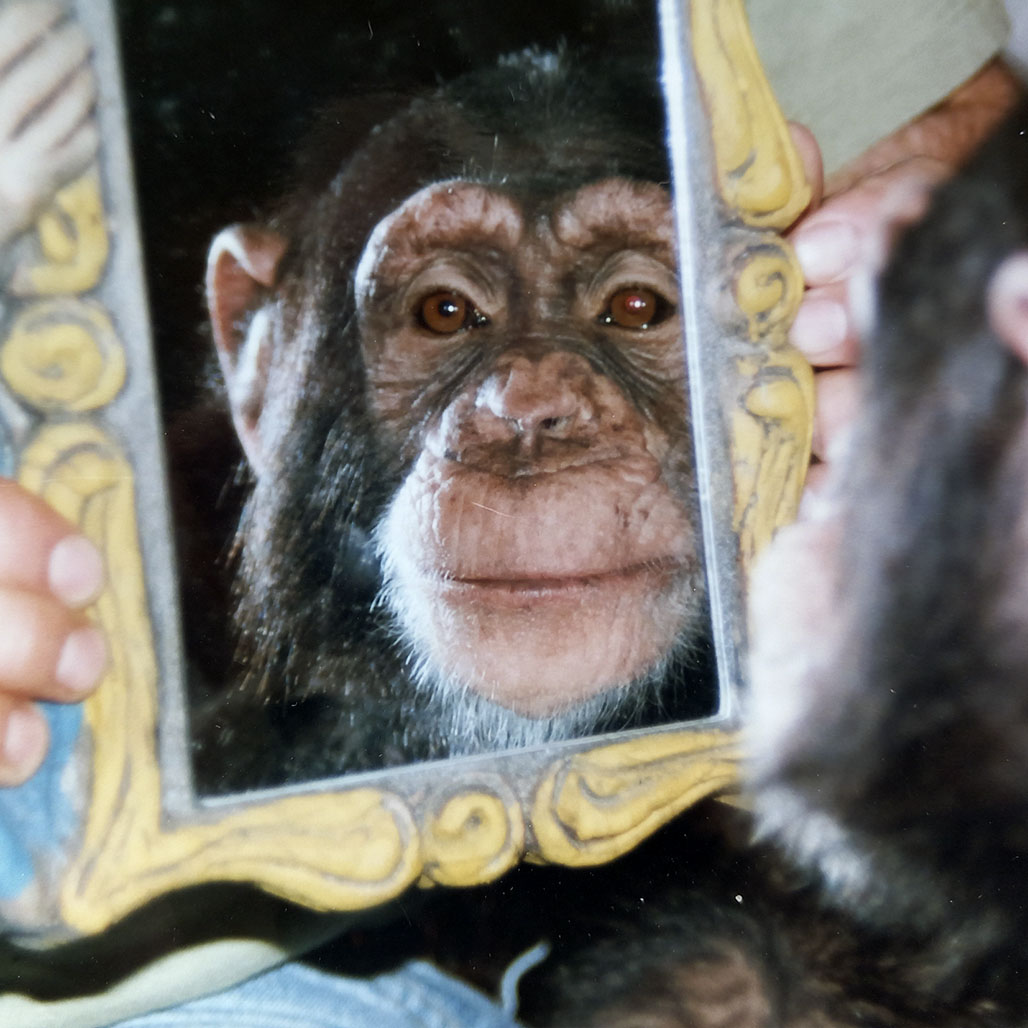The Evolution of Our Relationship with Animals and with Our Own Vulnerability.
By reflecting on the history of our relationship with animals, we can better understand the barriers we face and possible solutions to a more ethical, fulfilling, and conscious psychological connection. We spoke about this with Pedro Pozas Terrados, executive director of Proyecto Gran Ape.
Descartes and the Desacralization of Nature
In the 17th century, René Descartes contributed to the historical process of desacralization of nature by considering the body as a machine composed of parts, through mind-body dualism, mediated by the pineal gland. He argued that animals did not have souls, thus allowing dissection and vivisection. This marked the beginning of modern times, leading to unleashed capitalism in which animals have become mere products of exploitation and consumption. What happens then with the scientific evidence that indicates them as sentient beings, with their own culture and emotional ties?
❝SUFFERING IS SUFFERING, REGARDLESS OF WHO SUFFERS IT❞.
The Great Ape Project and Animal Rights
The Great Ape Project advocates for the recognition that chimpanzees, gorillas, orangutans and bonobos are non-human hominids, as were homo erectus and Neanderthals, from which we come. The intention is to recognize their basic rights (to life, freedom and not to be mistreated physically or psychologically) so that, later, other sentient species can also benefit. Currently, many are condemned to daily agony.
clear
410 / 5.000
Resultados de traducción
Resultado de traducción
Pedro Pozas states: “Just as we empathize with our pets, we find that same sensitivity in exploited animals. Even so, we decide to love some of them and kill others.” He denounces that, in zoos, great apes and other species are lifeless pictures, denying them the culture, habits and relationships that allow them to be who they are. “The suffering they experience is enormous.”
Causes and Consequences in Mental Health
Could we be projecting our unacknowledged vulnerability onto animals, subjugating them as we are subjugated by neurotic-capitalist utopia? This blind spot prevents us from recognizing obvious findings that animals feel like we do. One might think: why fight the suffering of a lower being when I, a higher being, am also suffering? This logic justifies that superior beings take advantage of inferior ones, seeing suffering as a punishment for being inferior.
The façade of the neurotic-capitalist utopia suggests that higher beings are destined for happiness (the day I succeed…, the day I get married…, the day I put more will into it…, etc.) . By the same logic, when a person feels unhappy, he pathologically experiences himself as inferior to others. This makes vulnerability itself, when it is effective, become unbearable and can only be experienced in terms of personal improvement: It is not that I suffer, it is that I am less.
Conclusions
Suffering is suffering, regardless of who suffers it. This principle leads us to highlight the structural mechanisms that, despite our interdependence as parts of a whole, generate inequality and oppression. Disconnection with the consequences that underpin the truth prevents empathy with ourselves, with others and with the world in which we live.
Understanding and overcoming these mental and social barriers is key to moving towards a more ethical and conscious society, in which the rights of all sentient beings are recognized and respected. Fighting for animal rights is not only a matter of justice for animals, but also a crucial step on the path to a more compassionate and just humanity.
